Review: FINKS Centers on a Terrifying Time and No-Win Situation for Artists in America
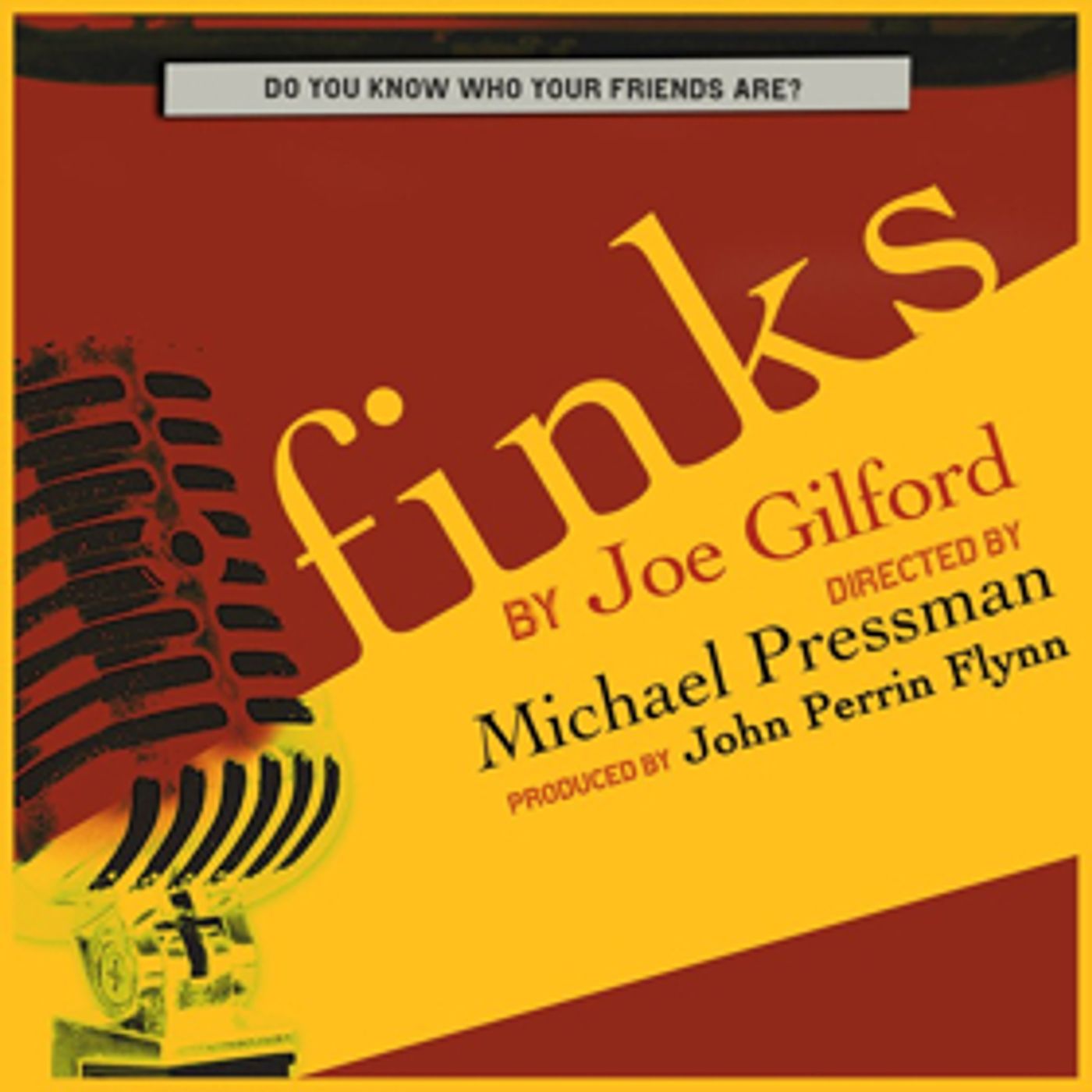
Perhaps one of the most terrifying times for artists in America was The Red Scare of the 1950s during which, under the leadership of Senator Joe McCarthy, the House Un-American Activities Committee systematically destroyed the careers and lives of countless writers, actors and directors, accusing them of the "crime" of their left-leaning political beliefs. As they were paraded before the committee, the artists' testimony was divided into two categories: a "Friendly" witness would name the names of those they knew to be politically progressive, perhaps having attended a gathering of so-called "communists." Among the most famous witnesses who named names were director Elia Kazan, screenwriter Budd Schulberg, and actor Lee J. Cobb, all of whom were branded as "finks" by those they named. "Unfriendly" witnesses maintained their right to silence and would not name names under the Fifth Amendment. But they were effectively "blacklisted" and barred from working in their profession, sentenced to jail time.  It was a no-win situation for anyone called upon to testify, whether they did or did not name names.
It was a no-win situation for anyone called upon to testify, whether they did or did not name names.
Rogue Machine, known for its mission to present original and provocative programming, is now presenting the West Coast premiere production of FINKS, a New York Times Critic's Pick which was nominated for a Drama Desk Award. The play brings together writer Joe Gilford and director Michael Pressman, friends since childhood and both children of Blacklisted artists. In it, Gilford documents the struggle his parents, entertainers Jack Gilford and Madeline Lee Gilford, endured when they were called to testify, with actual testimony or published statements by those who appeared before the House Un-American Activities Committee used in the play.
FINKS centers on Mickey Dobbs (French Stewart), 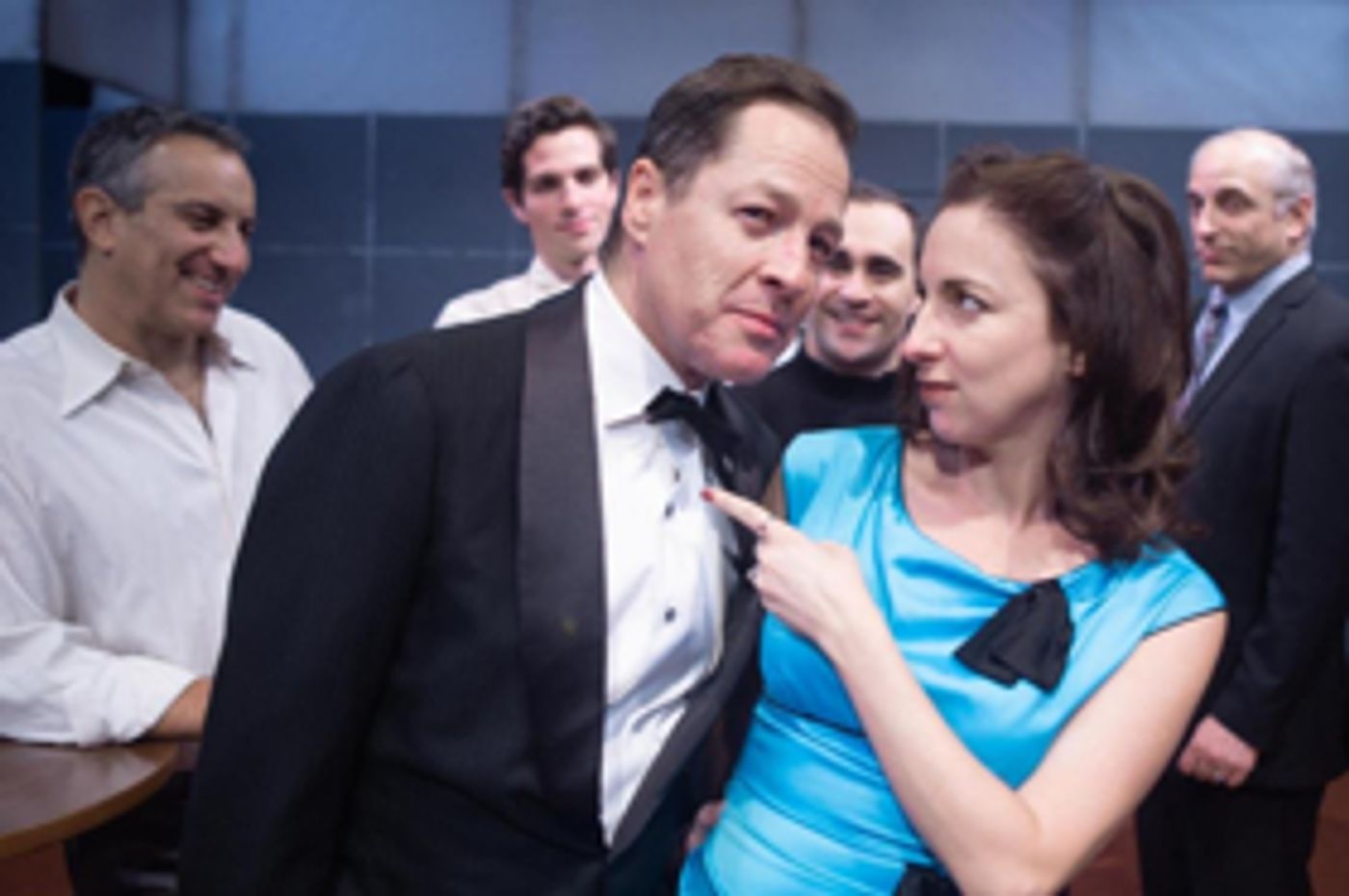 a comic on the verge of TV stardom who meets Natalie Meltzer (Vanessa Claire Stewart), a left-wing actress/activist who gathers friends in support of changing the way democracy was splitting America based on wealth. And if you think about it, even to this day many of their arguments for socialized medicine and equal rights still make media headlines and split public opinion. But in the 1950s, those who spoke out for such things were seen a subversive to our government and labelled communists, with Senator Joe McCarthy convinced movies were being made to promote those beliefs and needed to be halted before undermining our democracy.
a comic on the verge of TV stardom who meets Natalie Meltzer (Vanessa Claire Stewart), a left-wing actress/activist who gathers friends in support of changing the way democracy was splitting America based on wealth. And if you think about it, even to this day many of their arguments for socialized medicine and equal rights still make media headlines and split public opinion. But in the 1950s, those who spoke out for such things were seen a subversive to our government and labelled communists, with Senator Joe McCarthy convinced movies were being made to promote those beliefs and needed to be halted before undermining our democracy.
Often told on a split set designed by Stephanie Kerley Schwartz, testimony to the committee is given on one side, 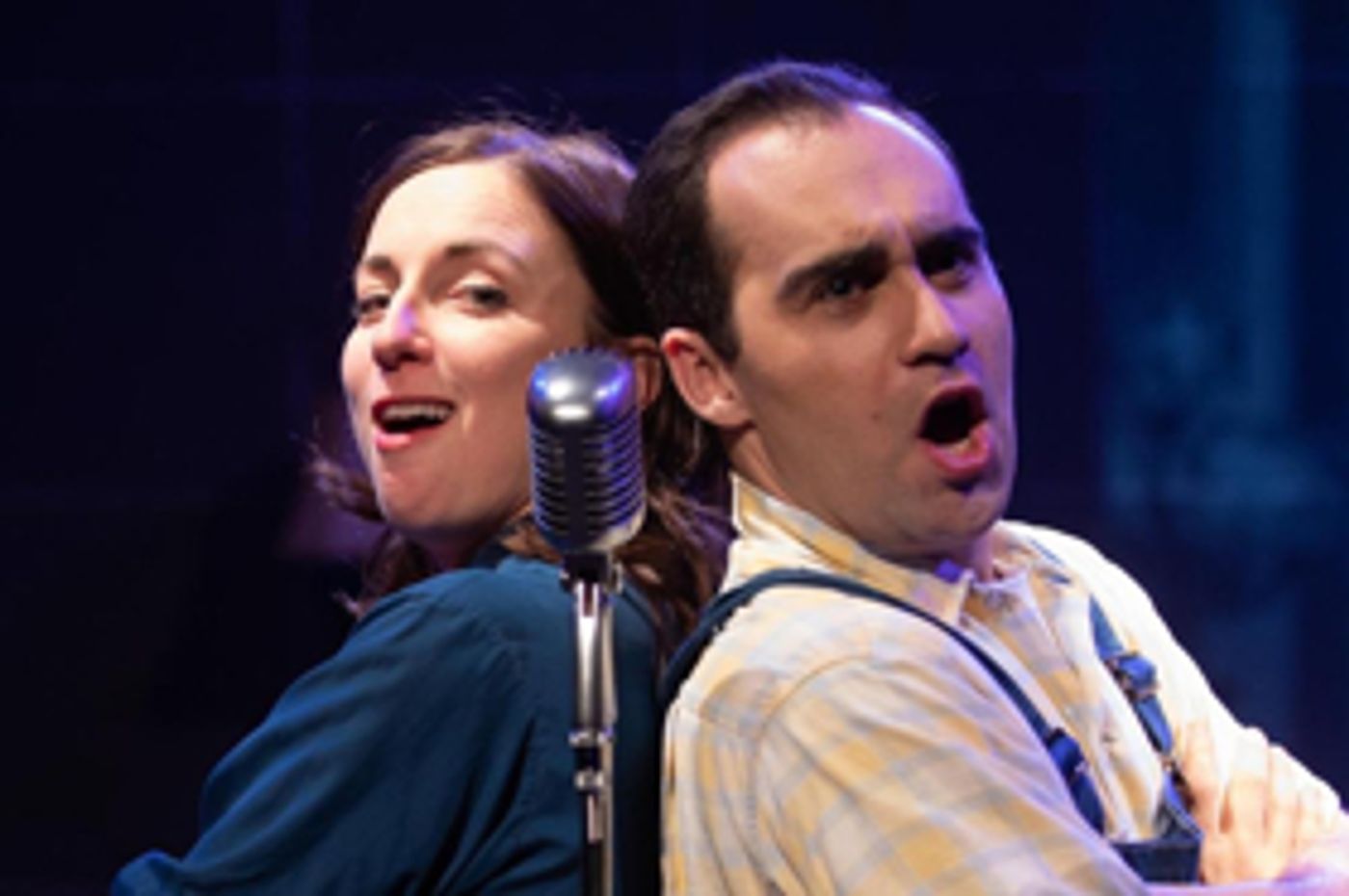 offset by action taking place in society on the other, be it in the bar where Mickey works on his material or the "communist" meetings which Natalie organizes, along with her closeted and soon to be ex-husband Bobby Gerard (Adam Lebowitz-Lockard), a dancer who knows being exposed as a gay man will end his career. Throughout the play, Richard Levinson portrays Dickie Lewis, the bar's Piano Man whose tickling of the ivories sets the mood of the time period to perfection.
offset by action taking place in society on the other, be it in the bar where Mickey works on his material or the "communist" meetings which Natalie organizes, along with her closeted and soon to be ex-husband Bobby Gerard (Adam Lebowitz-Lockard), a dancer who knows being exposed as a gay man will end his career. Throughout the play, Richard Levinson portrays Dickie Lewis, the bar's Piano Man whose tickling of the ivories sets the mood of the time period to perfection.
As Mickey and Natalie's romance blossoms, so does their risk of being blacklisted for their political activities. As the play progresses, The House Un-American Activities Committee, tasked with exposing communist subversion, 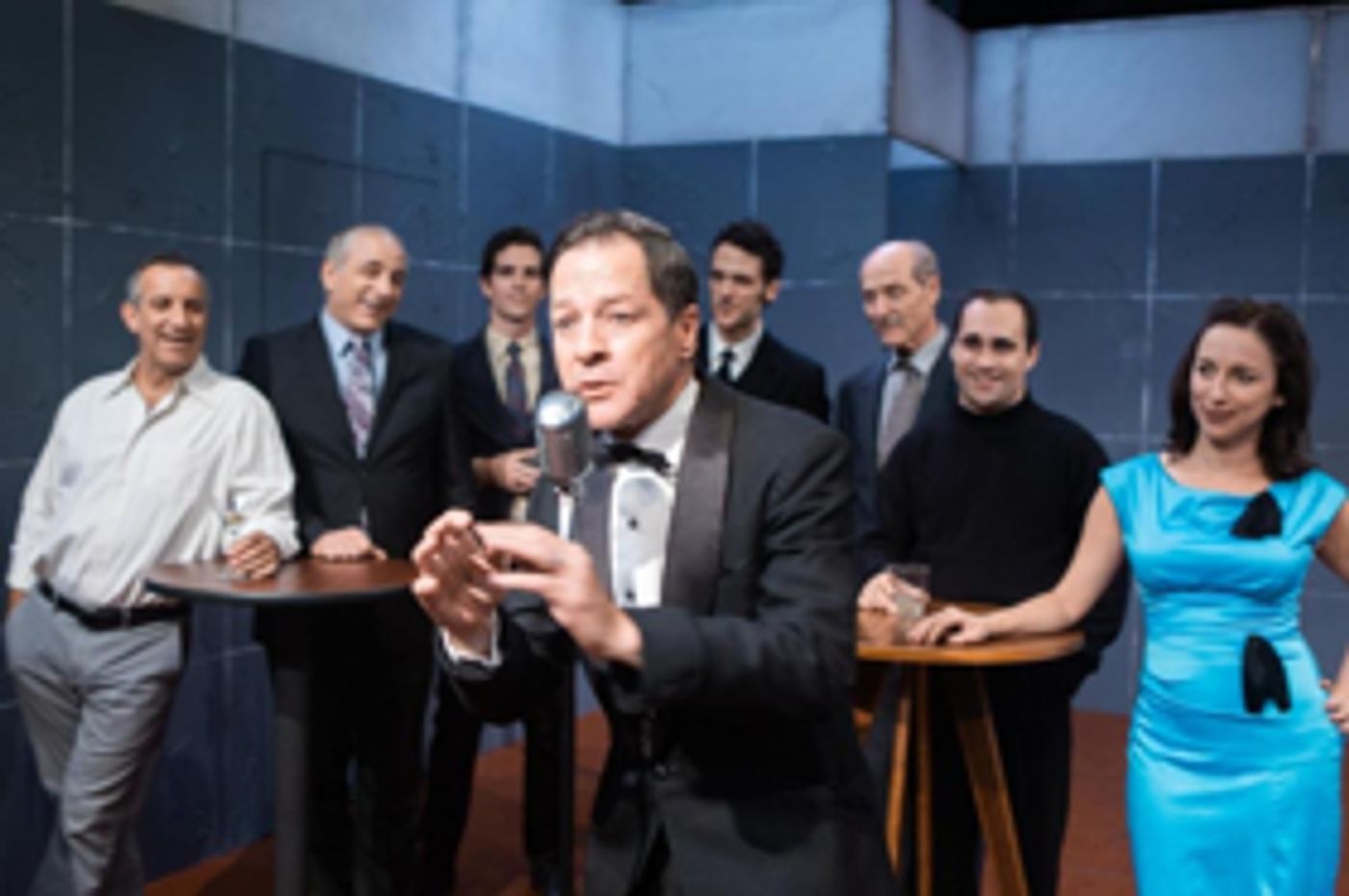 conducts hearings which lead to more than 300 directors, actors, radios personalities, and screenwriters boycotted by studios. Friends were turned against friends, and family against family, with most who were named never able to recover their careers. Actors in the ensemble, including Stephen Tyler Howell, Matt Gottlieb, Bruce Nozick, Daniel Dorr, and Thomas Fiscella, take on these striking roles with real backbone, allowing us to feel the stress under which each was forced to live with the federal government breathing down their necks for nothing more than their progressive political beliefs.
conducts hearings which lead to more than 300 directors, actors, radios personalities, and screenwriters boycotted by studios. Friends were turned against friends, and family against family, with most who were named never able to recover their careers. Actors in the ensemble, including Stephen Tyler Howell, Matt Gottlieb, Bruce Nozick, Daniel Dorr, and Thomas Fiscella, take on these striking roles with real backbone, allowing us to feel the stress under which each was forced to live with the federal government breathing down their necks for nothing more than their progressive political beliefs.
"What is most intriguing is not that the characters chose communism; it's that they chose to believe in an improved state. 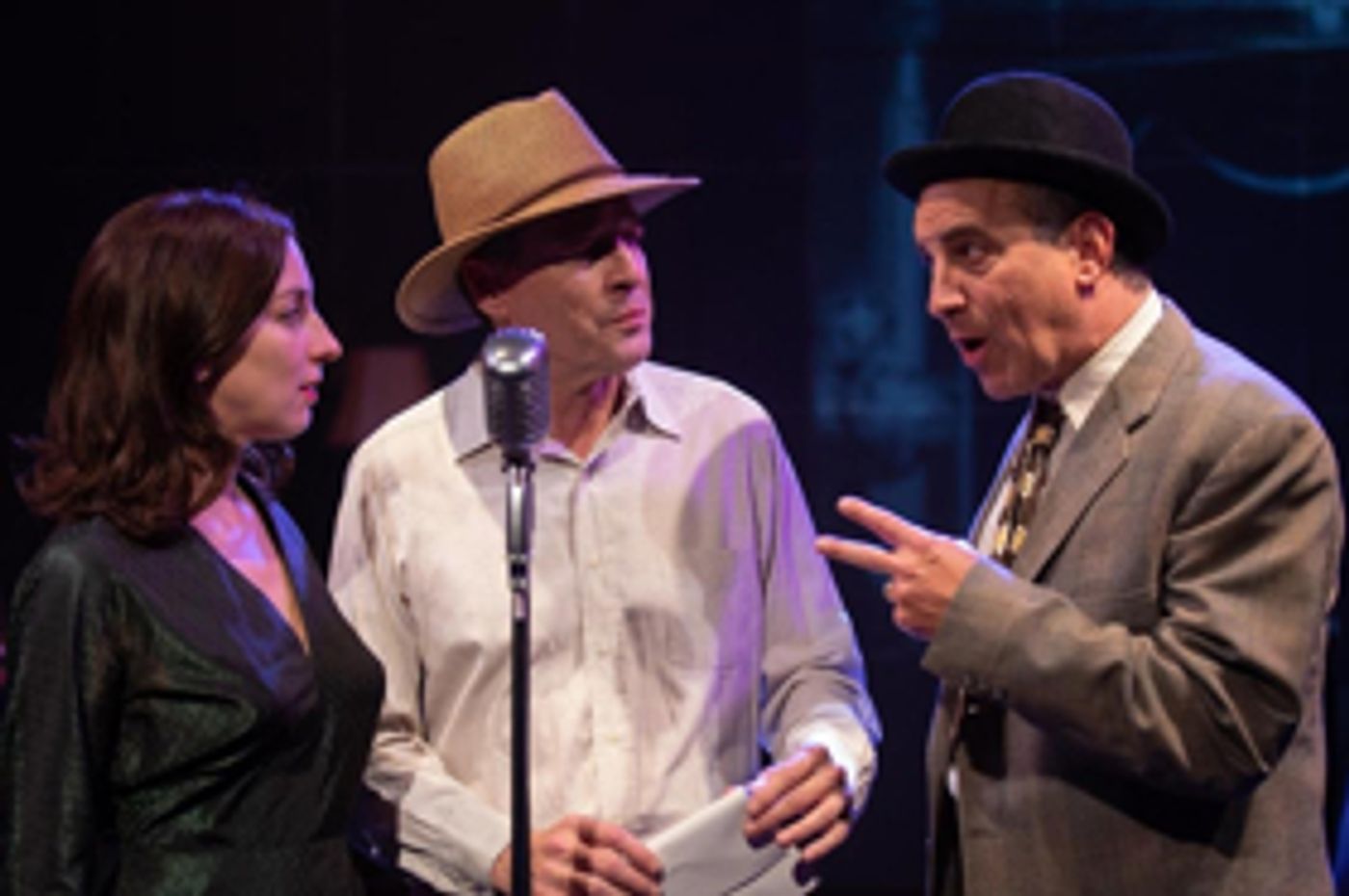 They were dreamers who became activists - they understood something was wrong. They understood they had to act or nothing would change. Both Joe Gilford's FINKS and Tom Morton-Smith's OPPENHEIMER, now running in rep at Rogue Machine, look at communism in America in the 30s, 40s and 50s. These plays are not about communism but about the universal ideal that we could be better than we are," says producer John Perrin Flynn.
They were dreamers who became activists - they understood something was wrong. They understood they had to act or nothing would change. Both Joe Gilford's FINKS and Tom Morton-Smith's OPPENHEIMER, now running in rep at Rogue Machine, look at communism in America in the 30s, 40s and 50s. These plays are not about communism but about the universal ideal that we could be better than we are," says producer John Perrin Flynn.
See these two thought-provoking plays and open your mind to the possibilities that we as human beings can really make a difference in how the world operates when we speak up, no matter how insurmountable the challenges appear to be. 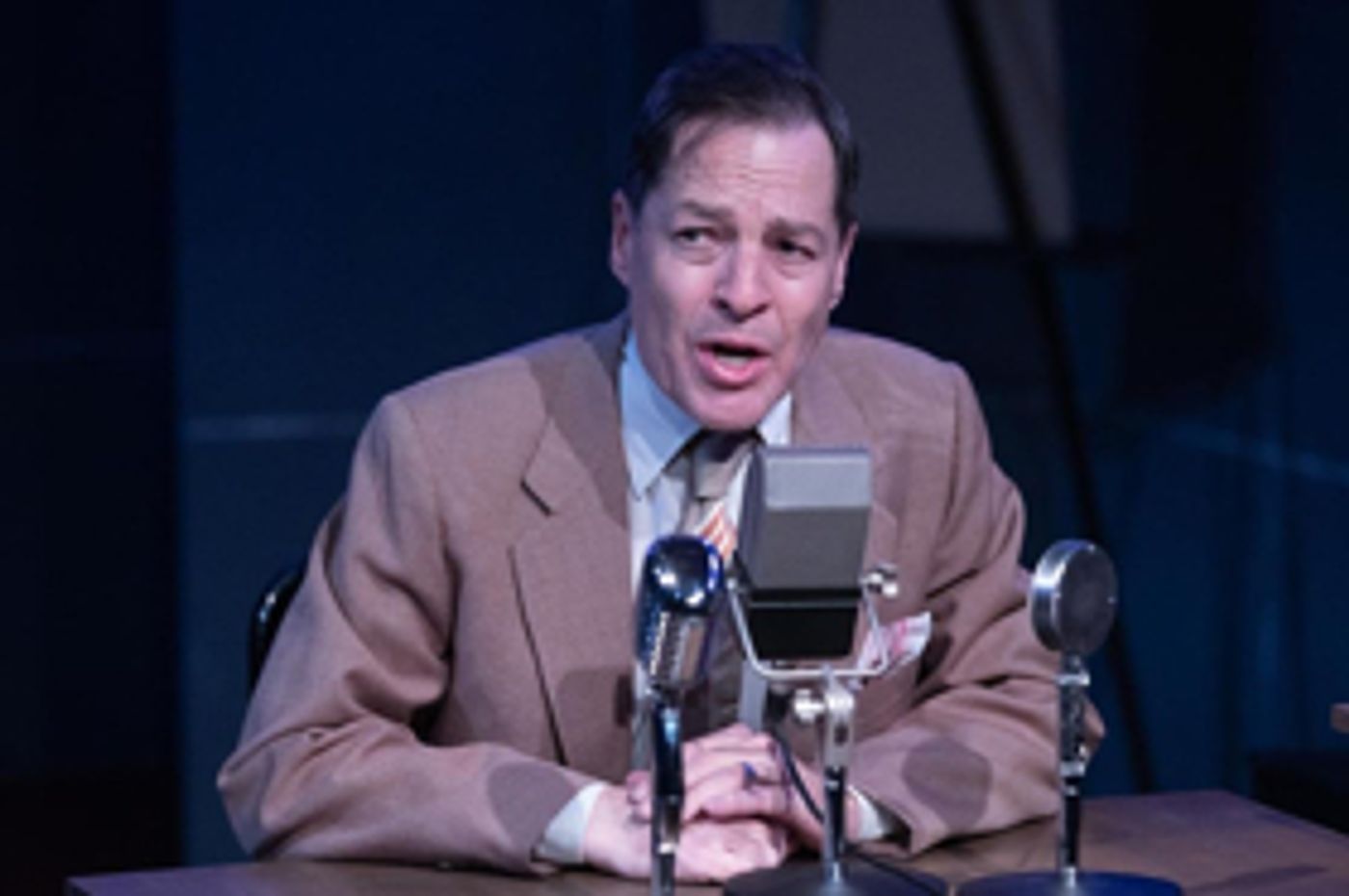 After all, those who do not pay attention to history are doomed to repeat it.
After all, those who do not pay attention to history are doomed to repeat it.
FINKS runs through December 30, 2018 at 8pm Fridays, 3pm Saturdays, 7pm Sundays (Exceptions: no performance 12/21, added 12/8 at 8pm). OPPENHEIMER performances take place at 8pm Saturdays and Mondays, 3pm Sundays through December 30, 2018. Read my review at /los-angeles/article/BWW-Review-American-Premiere-of-OPPENHEIMER-Initiates-Rogue-Machine-Move-to-Venice-20181017 Rogue Machine performances take place at the Electric Lodge, 1416 Electric Ave., Venice CA 90291. Free onsite parking. Tickets are $40. Reservations: 855-585-5185 or at www.roguemachinetheatre.com
Photo credit: John Perrin Flynn
Reader Reviews
Videos

